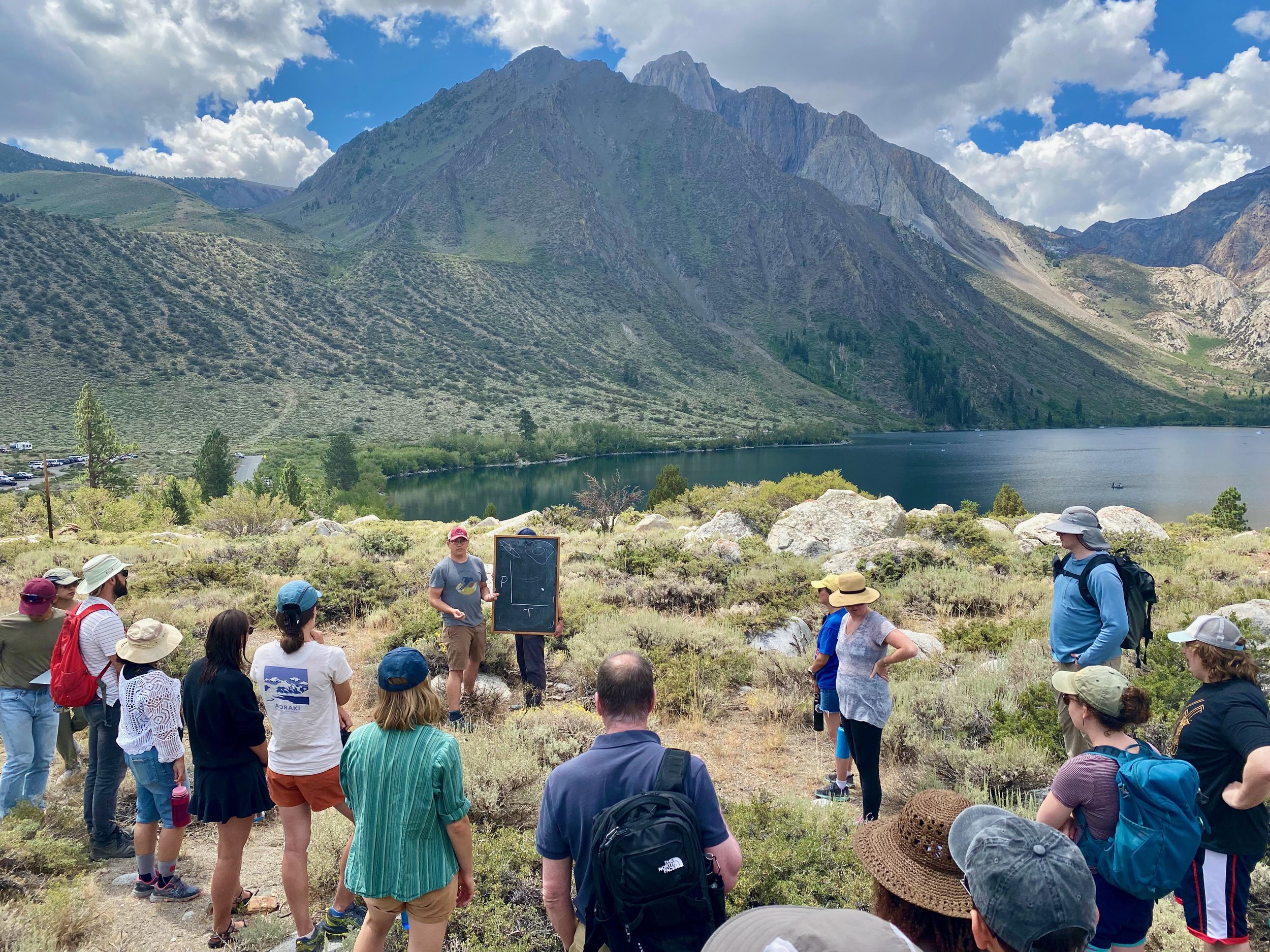
Curriculum
The format of paleoCAMP consists of lectures followed by hands-on exercises and tutorials. In addition, there are half day and day-long field trips to nearby sites of geological and paleoclimatic interest. The curriculum will also include a series of professional development workshops focusing on topics such as careers, diversity, science communication, and ethical fieldwork. Below is a general narrative of the curriculum content. The schedule as well as specific topics and exercises change every year based on timing constraints and/or instructors’ specialty, but there is always a core curriculum that is covered.
paleoCAMP starts with a focus on energy balance and the controls on Earth's surface temperature, followed by a review of general atmospheric and oceanic circulation. We discuss long-term Earth System climatic drivers and orbital forcing. Water isotope tracers are emphasized as a way to track past climatic changes. We also cover the role of the cryosphere, land surface, and carbon cycle in climatic change. Speciality topics may include Climate of Common Era, volcanic forcing, millennial-scale climate change, and tectonics & climate.
We focus on learning practical skills such as age modeling, proxy system modeling as a fundamental approach towards quantifying climate influences on proxies and uncertainty, spectral analysis, spatiotemporal analysis, and model-proxy comparison. We learn the fundamentals of Earth system modeling through exercises using the NCAR Community Earth System Model.
Field Trips
Field trips include a visit to Mono Lake to learn about the water history of Owens Valley and see carbonate chemistry action, a visit to the Pleistocene Wilson Creek Formation to understand and then practice age model development and evaluation, and a trip to the Ancient Bristlecone Pine forest, a landmark site in dendrochronology that provided early insights into variations in atmospheric radiocarbon production. We also study the glacial moraines that sit behind SNARL and ring Convict Lake.
Practical Skills
Students gain familiarity with coding through Google Colab exercises conducted in open-source languages including Python and R. The tutorials feature age modeling, proxy systems modeling, analyzing climate model output, energy balance modeling, and spatiotemporal statistics. Through the field trips, students gain experience with fundamentals of stratigraphy and dendrochronology.
